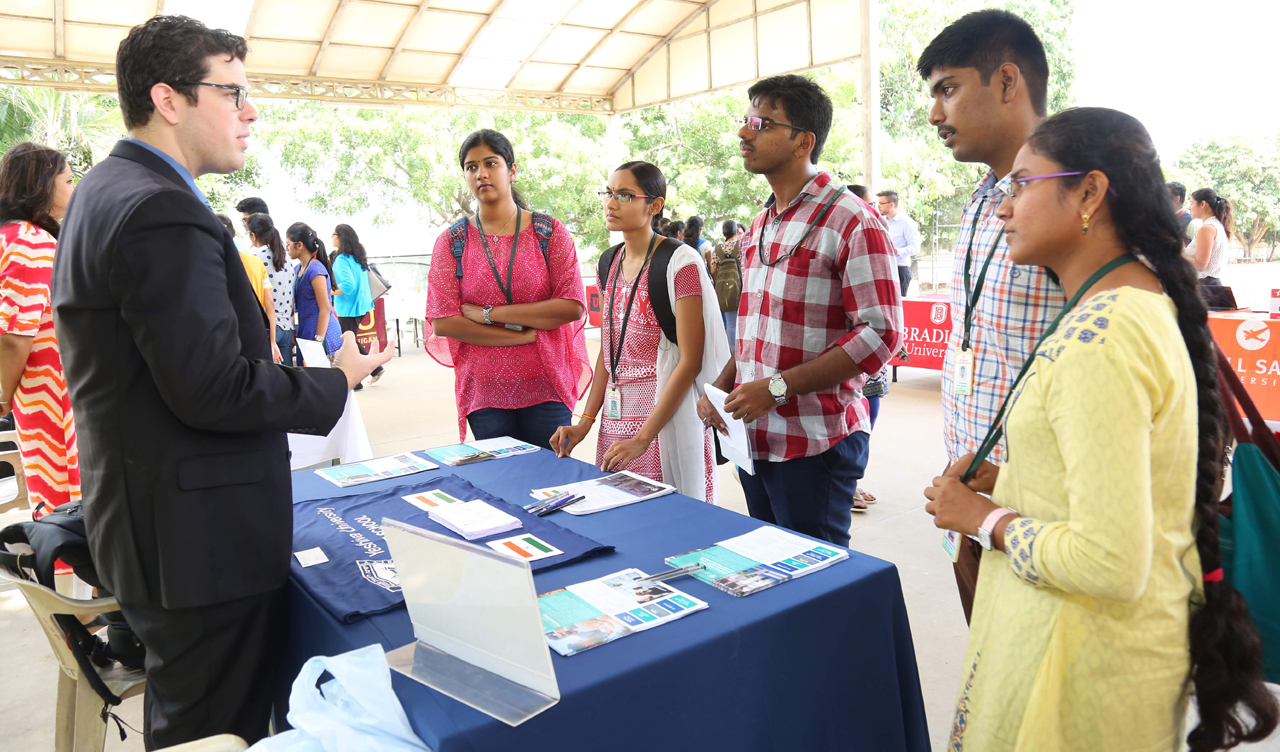Common application mistakes to avoid when applying to U.S. universities
The college application is a critical component in showcasing one’s personality, experiences and achievements to the admissions committee and highlighting why and how you are a good fit for the program and the institution

Hyderabad: Navigating the college application journey as an international student can be a daunting task, often requiring meticulous planning, careful research and self-reflection. The college application is a critical component in showcasing one’s personality, experiences and achievements to the admissions committee and highlighting why and how you are a good fit for the program and the institution.
Here are some red flags to look out for and avoid as you submit your applications to U.S. universities:
Submitting an incomplete application:
It reflects a lack of attention to details and leaves a poor impression on the admissions committee. Colleges and universities consider a holistic picture of the applicant, including grades, extracurricular activities, awards and achievements. Missing out on any crucial details can undermine a candidate’s chance of admission. Students must read the application instructions carefully, prepare a checklist of all the information and documents to be submitted and keep track of all of these components as they submit their applications.
Lack of context in your essays or personal statements and education section of the application:
Giving a nuanced context of your personal backstory, your academic focus, and your motivations can give the admissions committee an insight into your life as an individual, you as a learner, your academic aspirations and how you would contribute to the student community.
However, it is also important to share what is relevant to your application and avoid sharing unnecessary details to keep your story meaningful and impactful. You can also have your essays reviewed by experienced Education USA Advisers who can provide feedback on the content and how it addresses the questions posed by the university in the application.
Within the context of the application, both prospective graduate and undergraduate students should ensure that they are providing enough context about the education system their schools/universities follow. High school students can seek the help of their school counsellors to ensure that the education section has information like the grading scales, type of curriculum, and semester-based or yearly system of classes followed by the school/board.
Re-purposing the same essay for all universities:
Avoid taking a one-size-fits all approach to essays and submitting generic essays that fail to showcase one’s individuality. Impersonal narratives often fail to make an impact. Instead, focus on demonstrating how you can actively contribute to each college’s community, in addition to highlighting your ambition and future goals. Be sure to mention mentors, supervisors, and peers who have supported you on your journey.
Submitting a lengthy resume:
Not all universities will require a resume, but which do, be thoughtful and strategic in submitting these. For example, some universities may require a one-page resume, so be thoughtful in highlighting the most relevant experiences. You can stick to highlighting relevant details in bullet points.
Avoid unnecessary jargon and grammatical errors:
Using grandiose language and heavy vocabulary to show off your strong writing skills can often backfire and put you on the wrong footing. Use words that flow out naturally and lend an authentic voice to your writing. In addition, do proof-read your documents to ensure that they are free of grammatical errors and make for considered submissions. You can make use of virtual tools to check for grammar and syntax.
Seeking recommendations from those who do not know you well:
Students may be tempted to request recommendations from senior administrators at their educational institutions or high-ranking officials from civil society or the government to make a strong impression on the admissions committee.
Recommendations should be sought from individuals who have observed you over a period of time and can speak about your approach to learning, intellectual curiosity, interpersonal skills, overall personality and character. Educators (teachers and professors) who have taught you, mentors who have guided you on research projects, school counsellors who can evaluate you in the context of the school community will be able to provide more meaningful and authentic recommendations than those who do not know you well.
Overlooking financial aid instructions and deadlines:
Familiarizing oneself with financial aid forms like CSS Profile and FAFSA (in case of U.S. citizens) for undergraduate applications, and undergraduate and graduate level scholarships, is extremely important to ensure that all the submitted information is correct and accurate. One also needs to keep track of the deadlines and submit all the required documents on time.
By avoiding some of these common mistakes, one can submit strong applications that resonate with the admissions team. An application free from these pitfalls stands out as a true reflection of one’s academic capabilities, rigor and potential.
We encourage students to reach out to Education USA to seek accurate, current, comprehensive and unbiased advice on application components and other aspects of the U.S. admissions process.
Related News
-
Haiti gang attack on journalists covering hospital reopening leaves 2 dead, several wounded
33 mins ago -
21 dead as Mozambique erupts in violence after election court ruling
51 mins ago -
Cartoon Today on December 25, 2024
8 hours ago -
Sandhya Theatre stampede case: Allu Arjun questioned for 3 hours by Chikkadpallly police
9 hours ago -
Telangana: TRSMA pitches for 15% school fee hike and Right to Fee Collection Act
9 hours ago -
Former Home Secretary Ajay Kumar Bhalla appointed Manipur Governor, Kerala Governor shifted to Bihar
9 hours ago -
Hyderabad: Organs of 74-year-old man donated as part of Jeevandan
9 hours ago -
Opinion: The China factor in India-Nepal relations
10 hours ago




